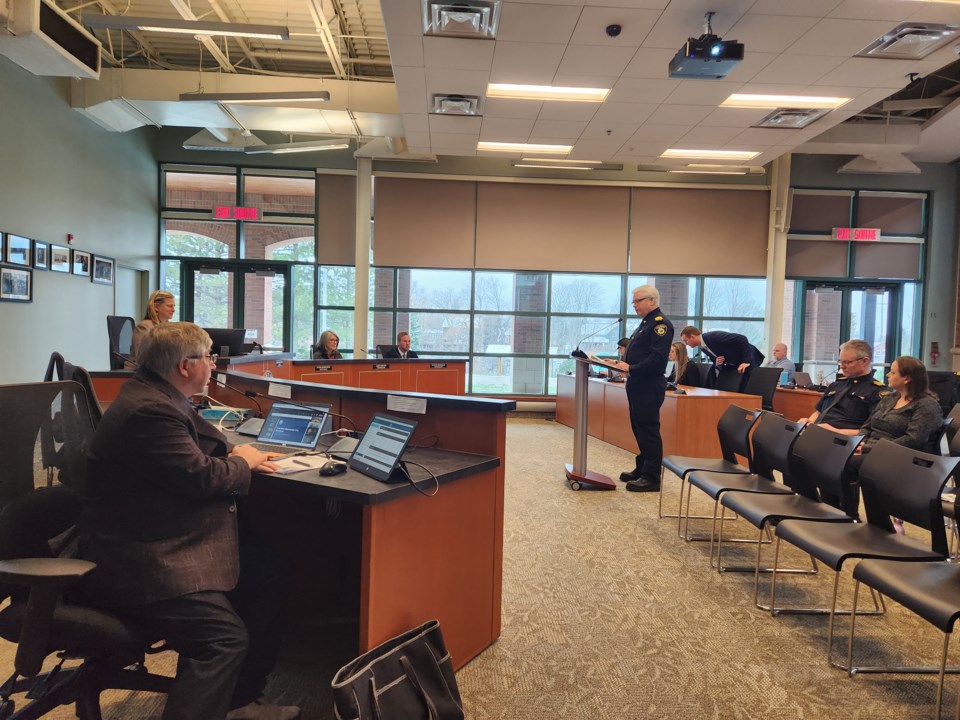The Blue Mountains Fire Department continues to experience challenges with recruiting and retaining firefighters.
In 2022, the department had just 22 volunteer firefighters (also known as paid-per-call firefighters) with 15 serving at the fire hall just outside of Thornbury and eight at the Craigleith station. Volunteer firefighters are not full-time fire department staff and respond to calls as needed.
In 2018, the department had 46 total volunteers and in 2014 their were 48.
Fire Chief Steve Conn presented the numbers at council’s committee of the whole meeting held on Jan. 10. Chief Conn and Community Emergency Management Coordinator Diana Livingston made council orientation presentations at the meeting.
“We’re about half our historical total we’ve normally had in the past,” said Conn.
The chief said the recruitment of volunteer firefighters is an issue across the local region, the province and even the country. He said locally, the high cost of housing is a barrier to recruitment. He also said local rural fire departments are losing their volunteers (The Blue Mountains has lost 36 volunteers over the past ten years) to full-time firefighting jobs with larger urban departments in Toronto, Barrie, Mississauga, Brampton, Oakville and other places.
Conn said in Toronto, for example, they recruit 96 new full-time firefighters every three months.
The turnover and low numbers has made it difficult for the fire department to advance firefighters into supervisory positions, said Conn.
The chief said the local department has implemented a work experience program to help with the recruitment of new volunteer firefighters. The program provides housing to recruits in exchange for them working locally as firefighters gaining experience as well as training and certifications needed. Conn said the program has been successful in other resort-style areas and will cost approximately $136,000 in 2023.
CAO Shawn Everitt echoed the chief’s concerns about recruitment and retention of firefighters.
“It’s becoming more challenging every year,” said Everitt, who noted that the local fire department suspended two significant programs in recent years – marine and high/low rescues – due to staff issues. “It was simply because we don’t have the staff. The training is significant.”
Everitt, a former volunteer firefighter himself, said the demands on the department continue to grow. He said not many years ago having multiple fire calls at the same time was a rare occurrence. Now, it happens more and more often.
“It is hugely taxing on the resources we have,” he said.


